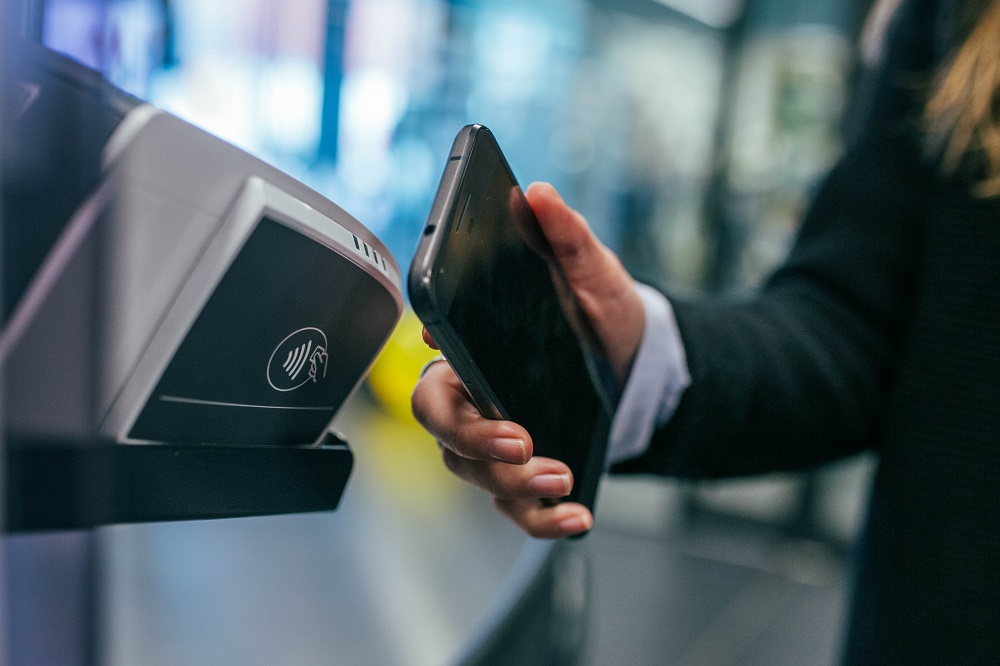For the last few decades, tech has seen rapid growth and development. However, most tech firms still complain that the infrastructure in place for B2B payments is only “somewhat effective.” While the process has become more streamlined of late, it still requires people to approve transactions, regardless of the size.
A big shortcoming of it is also that these kinds of services normally come at a cost. Being able to approve large transactions and make sure they have been made is something that small business owners have to do in-house as it is much too expensive to farm that work out to a specialized firm. That means this technology is largely inaccessible to smaller businesses and remains a luxury that only large, long-standing companies can afford.
This, however, seems to be on the brink of changing. Fintech companies have disrupted the field in many respects. Whether it is to use open finance regulations or simply improve the efficiency of an existing financial instrument, Fintech has made a massive difference in the finance world today. Therefore, it is realistic to expect similar changes to be made in B2B payment processes.

How Emerging Fintech can simplify B2B payment processes:
-
Make sophisticated safeguards more accessible
-
Harmonize the connection with third-party vendors
-
Automate approvals and lending processes
Read More: Europe in Russia’s Gas Crosshairs
Make Sophisticated Safeguards More Accessible
A well-established issue that comes along with handling one’s own B2B transaction is security. Trucking companies in Canada have complained of their entirely cash-based payment systems that make it difficult to pay for normal business expenses such as repairs, parking, cleaning, and other regular payments. Companies are left to wait on phone calls to ensure payments while also having to ensure that receipts are manually written and not lost in the process. Since these companies also do not have point-of-sale in general, there is no way to automate or speed up the whole process. They choose not to transition because of a lack of security, even when compared to simply keeping large amounts of cash on hand.
.jpg)
As a result, Fintech companies are coming out with automatic checks and balances that determine whether a payment should be approved or not. Furthermore, some payment processes can be quite complex, which means they become increasingly vulnerable to hacks and fraud. Although artificial intelligence has not reached the point of sophistication that it would be able to read and approve transactions on its own, Fintech companies have devised solutions that can facilitate connections between small businesses making payments and third-party verifiers who can ensure the payment goes through. This is something that is done at a fairly low cost as it does not require too much expertise once the platform has been created.
Furthermore, small businesses do not have the luxury of a strong or established reputation. Therefore, cybersecurity issues that are publicized can be extremely detrimental to the tangible side of the company. This also means that smaller companies are unable to compromise on payment processes as they cannot afford to take that gamble as to whether their payment vulnerabilities will be exploited or not.
Read More: Five Personal Finance Startups that are Revolutionizing Fintech

Harmonize the Connection with Third-Party Vendors
Automation in B2B payments is an ambitious goal to strive towards. If it is possible to accomplish it without compromising security, it would be truly game-changing for businesses around the world. However, a critical aspect to keep in mind is that different businesses handle payments differently. This means that certain businesses might use different platforms to make payments, while others might use unique payment structures to fit their/their clients’ needs. This means creating a blanket solution to automate B2B payment processes is hard to do without eliminating the disconnect between these businesses and third parties.
In addition to this, there is a lot of friction whenever a new fintech company tries to make a new solution, as there is no ‘one-size fits all’ process when it comes to B2B. Therefore, many countries have seen governments and Fintech companies coming together to mandate a single platform that facilitates all payment services. While not strictly B2B, India saw the introduction of a unified payment interface (UPI), which ensures that different payment methods like Google Pay, PhonePe, and PayTM can all work through the same technology. This also makes it easy for payees to receive their money in their own wallets regardless of what was used for the payment to be made. Similar streamlining has begun to emerge all around the world so that there are more opportunities for third parties to make general solutions.

Read More: Economic Whiplash: What is it and Four Ways to Avoid it
Automate Approvals and Lending Processes
As the world looks forward to the almost inevitable recession, many businesses must look to credit to ensure they can remain afloat in these times. However, dissimilar to normal B2B payment processes, lending processes have become increasingly automated over the years. Fintech has used smart contracts on the blockchain to ensure lending processes are fast and efficient without camouflaging any information or fees.
This has been attempted by companies in simple payments from business to business, but it is much more complicated and requires more criteria to be verified before a payment can be approved. However, if these processes were to be better automated, companies would be able to make and receive payments much faster. This would improve the general economic efficiency when making payments and could lead to widespread improvements to global economies.
The Big Picture
Specialized payments, like many other financial instruments, are difficult and expensive to afford. For decades, larger companies have had it much easier and were able to catalyze growth by not having to worry about trivial things like payments. A large backstop in global economies is that new start-ups must focus on multiple elements like wealth management and accounting that cannot be done effectively without paying for them accordingly. As a result, the growth of many small businesses is hampered, thereby slowing the economy. Removing these roadblocks on the path of small business is of paramount importance due to its repercussions on global economic standards.
When small business owners allocate more of their time to actually improving their products or services, the economy will see better and more innovative solutions coming into play as compared to those that have existed in the past. Small businesses have solidified themselves as a part of the backbone of the economy. Not only do they bring new and improved versions of existing products, but they also ensure that the bigger businesses are unable to remain complacent in their position. This brings more competition and a better environment for innovation and economic prosperity in general.
Therefore, investors must look to fintech companies to help eliminate or, at the least, alleviate the obstacles that these small businesses face.
With a presence in New York, San Francisco, Austin, Seattle, Toronto, London, Zurich, Pune, Bengaluru, and Hyderabad, SG Analytics, a pioneer in Research and Analytics, offers tailor-made services to enterprises worldwide.
A leader in Market Research services, SG Analytics enables organizations to achieve actionable insights into products, technology, customers, competition, and the marketplace to make insight-driven decisions. Contact us today if you are an enterprise looking to make critical data-driven decisions to prompt accelerated growth and breakthrough performance.









